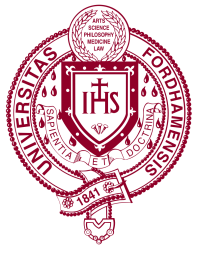By Alex Finn-Atkins
“Despite not receiving a Fulbright grant,” Tori Campbell reflects, “the process [of applying] taught me how to write Personal Statements and Letters of Intent more effectively and clearly.” After going through months of revision, the very best fellowship application essays will persuade the committee that the candidate is an excellent fit. Although such advanced writing requires much hard work and dedication, Tori feels strongly that this process prepared her for future cover letters, interviews, networking events, and professional roles in management and urban global studies.
Having majored in Dance and Sociology at Fordham University, Tori knew for some time that her academic interests were varied. Given this double major, she was immediately attracted to the University of Amsterdam’s graduate program in Gender, Sexuality and Society. A feminist from childhood, Tori explains that her “undergraduate degree in sociology gave [her] the theoretical framework and vocabulary to understand the inequity of gender and sexual relations in America.” After completing her bachelor’s, it was now the time for Tori to expand her perspective by living and studying in another country…and…hopefully…on a prestigious fellowship!
Each summer graduating seniors and recent alumni work diligently on several types of fellowship applications, such as the Fulbright U.S. Student Award to study, research, or teach English in over 140 countries. But these awards are particularly competitive, with only about one in every four or five applicants awarded a grant each year. As Tori soon discovered, applying for a Fulbright is no easy task, requiring her and every other applicant to prepare recommendation letters, academic transcripts, and two short essays.
Throughout this extensive process, however, Tori found the members of the Office for Prestigious Fellowships to be extremely informative, supportive, and meticulous. She recalls how the former Fulbright advisor, Rebecca Stark-Gendrano, “patiently read these at least half a dozen times each, with new comments and suggestions each time, helping me to fine-tune my work.” By drawing from past experiences, fellowship advisors, both past and present, help applicants to craft essays that include succinct and captivating narratives—ones clarifying how the applicant’s professional interests and goals align with the specific host country, program, and mission of the award.
Not only does this process require applicants to fine-tune their writing skills, but it also measures their ability to communicate with others in person. When applying to Fulbright U.S. Student Program through a host institution, the application also includes an oral component. After submitting her written documents, Tori remembers, her Fulbright Program Advisor scheduled an on-campus interview: “I then met with a board of professors from Fordham, where I presented my proposal and they asked me questions challenging the practicality and the necessity of my project.” This unique interview experience requires young professionals to practice the challenging skill of marketing their research project and expertise to a group of established, yet diverse, professionals.
Although Tori did not end up receiving the Fulbright, she took advantage of her post-college years by gaining a diversity of professional experiences: from supervising a vintage and bridal salon to working as a costume assistant on Neftlix’s The Get Down to managing the office of a small political magazine called the New Republic. After these many experiences, Tori discovered the 4Cities Master Program and became “enchanted by its global urban focus and the opportunity to travel and live in various countries in Europe.”
“My best advice would be to keep perspective,” Tori suggests to any student interested in applying to the Fulbright U.S. Student Program. After graduation next year, Tori will be one step closer to becoming an urban planner, consultant, or PhD student in global urban studies, and there’s no doubt that the process of applying to Fulbright helped her early on to develop the professional skills she needed to get there!
Any Fordham undergraduates or alumni interested in applying should contact our current Fulbright advisor Dr. Anna Beskin at beskin@fordham.edu.



